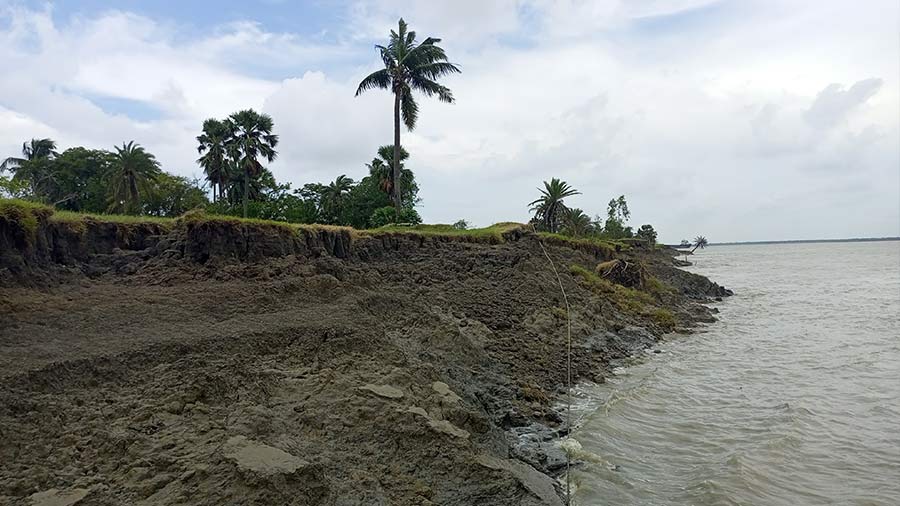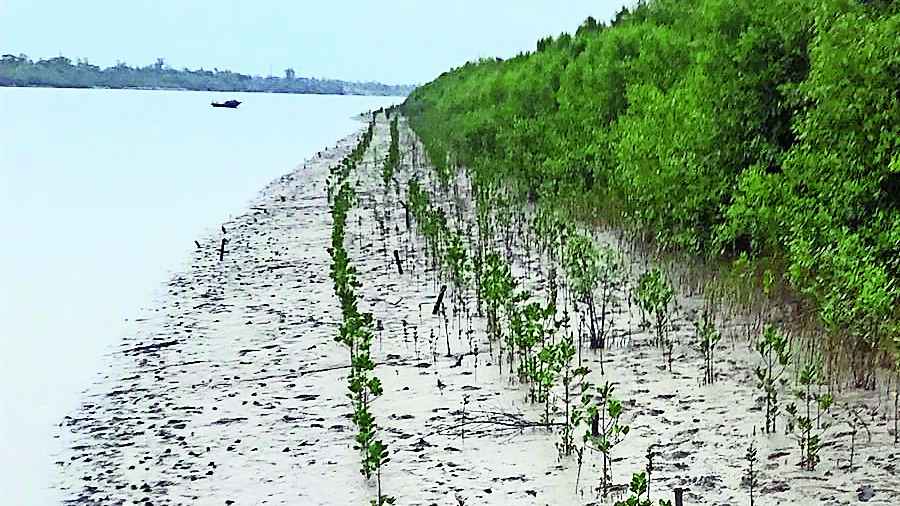On the final day of the UN climate summit at Sharm El Sheikh in Egypt, a unanimous global agreement is still not in sight and funds for climate change-triggered loss is a major reason for that.
A draft negotiating text circulated early on Friday is unclear about the fate of the demand by the developing countries and refers only to “placeholder funding arrangement responding to loss and damage”, a signal the issue is still being negotiated. Developed countries have opposed the immediate grant of funds to offset loss and damage caused by climate change in developing countries.
If the funds are eventually granted, it would be a gamechanger for areas like the Sunderbans that have repeatedly suffered because of climate change. “Such an arrangement would be a major source of strength for the hapless people of the Sunderbans,” said an Indian environmentalist at COP27.
On Thursday evening, the COP president, after a meeting with the UN secretary general, had urged countries “to go the extra mile… to reach the much-needed conclusions and agreements”.
“The mitigation work programme is yet to reach the desired outcome. Adaptation is still held back by procedural matters. Ambitious outcomes on finance have not yet materialised. And on loss and damage, parties are shying away from taking the difficult political decisions,” said COP president Sameh Shoukry.
“It is evidently clear that at this late stage of the COP27 process, there are still a number of issues where progress remains lacking, with persisting divergent views amongst parties,” added Shoukry. “Unequivocal support” that the global leaders provided at the beginning of the COP has not been reflected in the negotiations.
On the issue of loss and damage funding, the COP president said that he and the UN secretary general discussed “at length the current status of matters relating to funding arrangements responding to loss and damage associated with the adverse effects of climate change”.
“I believe that extra effort needs to be exerted by all parties to ensure an agreement on this matter, one that would provide a basis that would allow us to effectively respond to the urgent and legitimate demand for an adequate funding setup for loss and damage at the earliest,” added Shoukry.
Developing vs developed world
The developing countries almost unanimously want the grant of funds to be finalised at COP27. Many developed countries want more discussion on the issue before the grant of funds is finalised around 2023-24.
Some developed countries have further muddled the process by demanding that major economies like India and China should also bear responsibility for loss and damage payment.
“We want the facility to be created at Sharm El Sheikh. The modalities may be worked out in the next one or two years. If that is not done, this COP will not be successful,” said Nabeel Munir, Pakistani ambassador and key negotiator, on Thursday.
“We are in support of such a facility but more discussion is required and various other possible funding instruments apart from public finance need to be considered before we create a loss and damage facility,” said Frans Timmerman, executive vice-president of the European Commission, sitting beside Bas Eickhout Mep, head of the European Parliamentary Board.
Timmerman added that the “world has changed since 1992 and present major economies and emitters should also pay for loss and damage”.
Mep argued that along with loss and damage, mitigation, overall finance and other key agendas need to be discussed.
“The stand of developed countries is absolutely unacceptable and if developed countries do not agree to the creation of a facility here, it may push the COP into a make-or-break mode,” said Harjeet Singh, head of global political strategy at Climate Action Network International.



